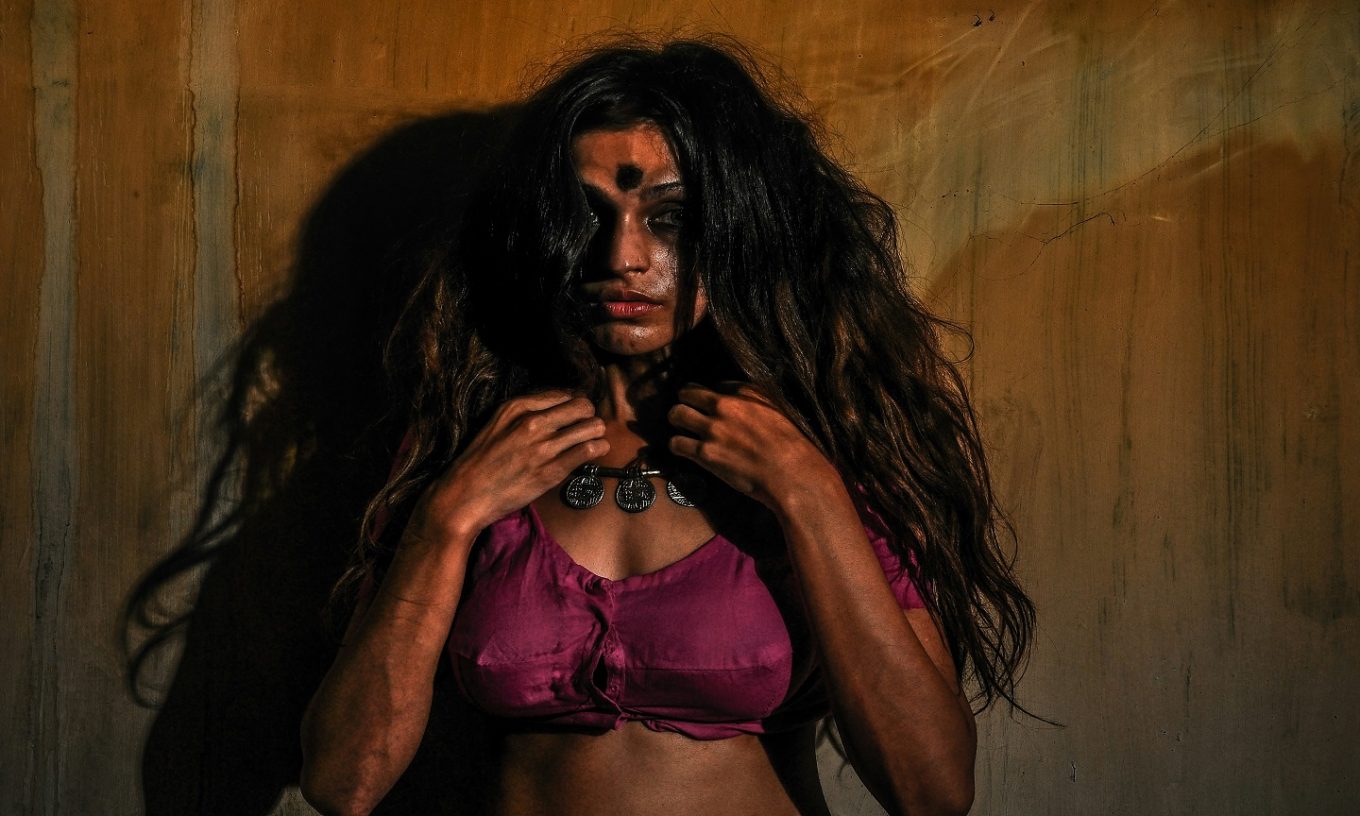Bhojpuri: Saroj Singh
Translated: Arya Shukla
A fourth baby – a girl – was born after three brothers. Her blessed birth was celebrated with infinite joy. They kept her name Tetari (the Fourth child). She was given an abundance of love and adoration. After Tetari’s birth, there was never a shortage or dearth in the house. To this Kamru would say eagerly,
“Our baby girl brought this along with her…. the Mother Goddess has blessed us with her own hands.”
Kamru’s entire clan and lineage had never educated a daughter before but for Tetari, they went out of their means and hers to send Tetari to high school. Everyone around Tetari insisted to Kamru,
“What is this Kamrua, you want to dry seeds on a wet cloth…. What will you do, having educated your daughter so much? After all, she will manage her stove and kitchen at the in-laws’ right?”
However, Kamru listened to none. He showered all his devotion and attention on Tetari.
And then, it was time to find a boy worthy of her. Kailash was a government peon in the city. It was a good wedding, dropping their gifts and eating their fill, everyone collected around the boy to tell him,
“Oh babuaji, your luck has now woken. The girl is like an actual fairy from the stories.”
Talk of Tetari’s beauty lit up the entire village. Every maiden in the village was surely compared to Tetari.
Somehow perhaps in all the talk and aplomb that followed, she forgot to bring along her good luck. Even then, they spent a few days of peace, but soon Kailash left for the city and his job. He returned every six months to meet Tetari who would beg and plead with him to take her along; each time she pleaded, Kailash would convince her otherwise, saying,
“I’m still saving money for a house, as soon as we have enough, I’ll take you along. I don’t feel good without you either. Take care of my parents for now.”
In service of her widowed father-in-law, brother and sister-in-law, Tetari’s days turned into nights. She was so busy with her duty to them that she would forget to take care of herself.
Days would pass before she ate even a morsel of food … and there was no one to ask after her either. Her sister-in-law never spared a moment beyond having her own needs fulfilled. This treatment had consequences, the life that filled her womb dried up and withered. Letters and money orders would arrive from the city, but not a paisa landed in Tetari’s hands. One day, Tetari was handed a letter that wiped off the pulsating sindoor mark on her forehead. The full pot of sinhora, a token of her married life, was nested away in a cubby on the wall. She was now considered bad luck, inside and outside her home.
After that, everything changed in their home. To line his own meagre pocket, the postmaster would give her man’s pension away to his father or brother. The days’ work broke her body and her nights were crowded with the shadows of those dark thoughts that kept her awake. Tetari lost all sources of warmth and comfort in life. It did not take long for her father and brother-in-law’s attitude towards her to change at all.
“You wretched wench, womb uprooter, you couldn’t carry a baby to term, so you ate up mine as well.”
These were words she heard daily. And then at every good deed or auspicious moment Tetari was kept away permanently. Her sister-in-law was reigning day and night. Tetari was not allowed to present herself even in front of her sister-in-law.
One day, there was a marriage at the patidar’s house, and everyone left for their door. Tetari finally had the chance to rest. She wrapped up all the chores and duties of the house; just as she was entering the closet, someone reached out from behind her and clapped a hand on her mouth. Frightened, Tetari grabbed the closest thing she found, her sinhora and smashed it hard into the intruder’s head. In a flurry that hand unclasped from over her mouth. Loud sobs broke out from Tetari in fits. Hearing the commotion, the people of the house came running back. When they saw the scene, they were left astounded. Sindoor was scattered everywhere. Tetari was cowering in one corner, sniffling brokenly … there stood the brother-in-law – blood dripping from his head. When he saw everyone, his demeanor changed.
“Oh, this one – she is a dayan. A witch. Look people, the sindoor everywhere. She has done such a deed with that. Her own womb is barren, now she has set out to curse my wife’s womb.”
This much was enough for everyone to beat Tetari out of the house. The once-blessed Tetari was now a dayan forever more.
Now, right outside the village, in an area where the Musahar group lived, there was a garden. These days, there is a small hut set up in that garden, every morning there appears a sindoor tika on its gate. Access – coming or going – from that garden has stopped for all. Especially for young women – they were prohibited from venturing anywhere near it.
“The witch’s house,” said some. The name stuck.
“The dayan walks with turned feet at night,” said some others.
“She drinks human blood.”
Tetari is happy being a dayan. Her days are filled with rest and her nights with sound sleep. The postmaster, now scared of the dayan, drops off the pension at the dayan’s house. Holding on to her sinhora, Tetari says,
“This sindoor never suited my head, so what? It suits my door.”
Translator Bio:
Arya Shukla is a postgraduate student at King’s College London. Her interests include baking, reading, exploring new places and translation. She translates in Hindi, Urdu, English and Bhojpuri.
Photo by SHIRAZ HENRY on Unsplash





